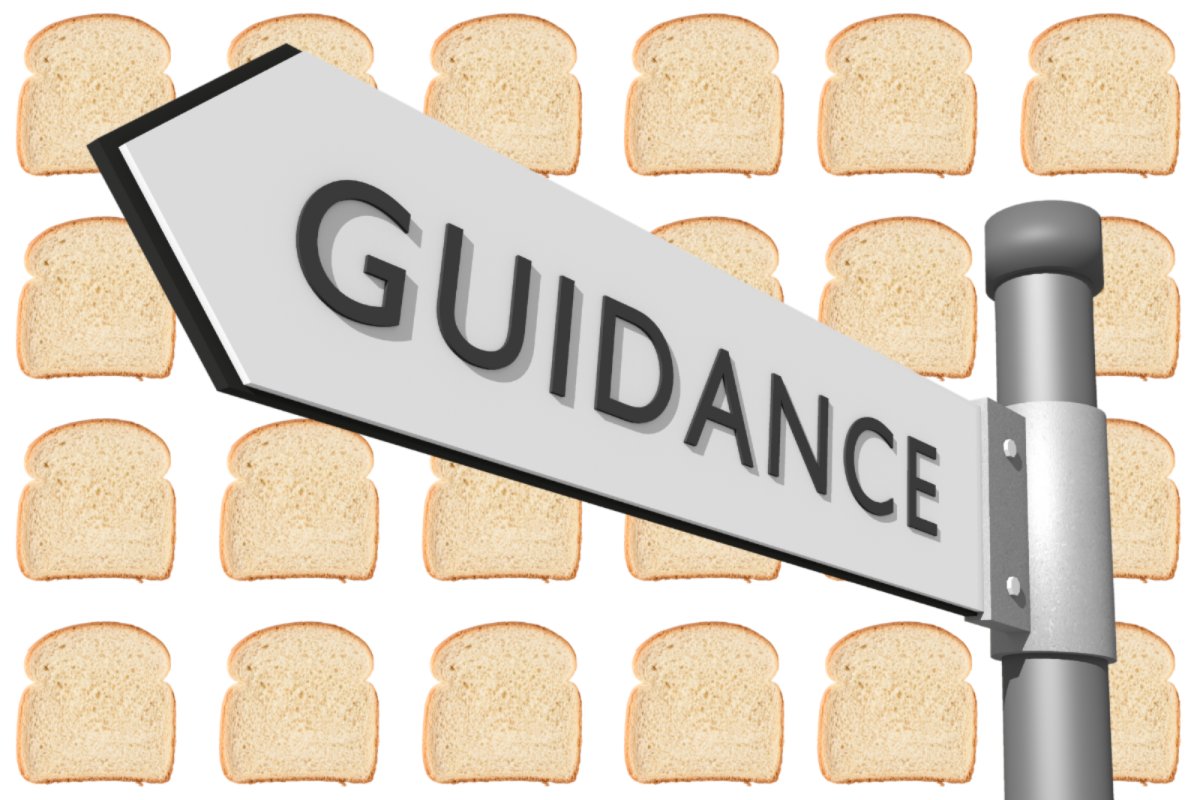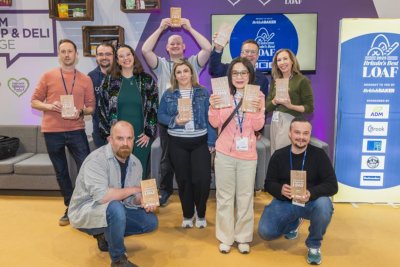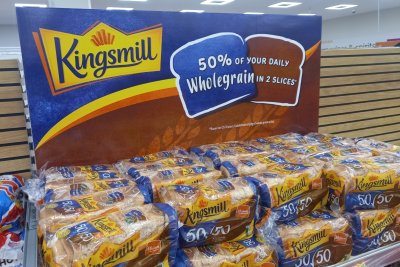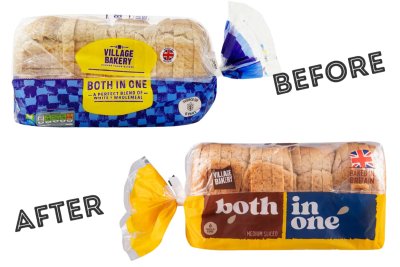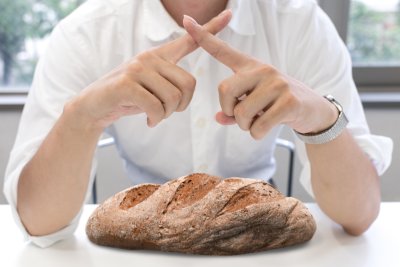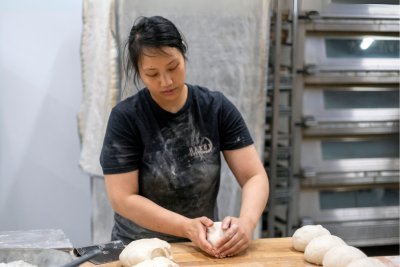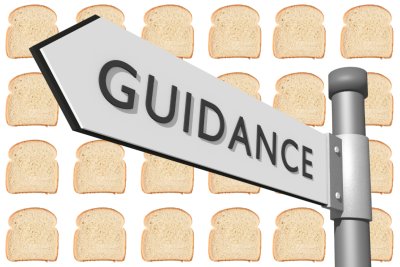 Pointing the way. Credit: Canva / www.realbreadcampaign.org CC-BY-SA-4.0
Pointing the way. Credit: Canva / www.realbreadcampaign.org CC-BY-SA-4.0
New bread and flour guidance: gains and omissions
The Real Bread Campaign’s qualified welcome.
On 23 April 2023, the Department for Environment Food and Rural Affairs (Defra) published new guidance on the composition and marketing of flour and products sold as bread in the UK.
The guidance was issued to accompany The Bread and Flour (Amendment) (England) Regulations 2024, which were enacted in November 2024 as the result of a process that began back to September 2021.
Welcome but a reminder of missed opportunity
Real Bread Campaign coordinator Chris Young said: ‘In general, we welcome this guidance, as it should help to create clarity for producers, retailers, consumer protection officers and, ultimately, all of us as food buyers. It highlights a number of gains for which we, and others successfully lobbied, including a regulatory definition of wholemeal and exemptions that offer choice to people who need or want additive-free non-wholemeal flour, albeit only to a very limited extent.’
He went on to say: ‘On the downside, the guidance serves as a reminder that, under the previous Government, Defra chose not to use the opportunity to fully update and improve the quarter-century-old Bread and Flour Regulations to make them more fit for purpose today’
On 18 February 2025, Sustain’s CEO, Kath Dalmeny, wrote to The Minister of State for Food Security and Rural Affairs. She suggested a meeting to discuss which of the Real Bread Campaign’s Honest Crust Act proposals the current government might consider taking forward, but has not yet received a response.
Unwholesome
The guidance underlines that the word wholemeal cannot be used in the name of a product unless all of the flour is wholemeal. It goes on to advise that the word can be used in the description and marketing of a product made from a mix of wholemeal and non-wholemeal flours.
Chris Young said: ‘We are disappointed by the interpretation of the Regulation that has been used in the guidance, which risks rendering the word wholemeal almost as technically meaningless as the unregulated term whole grain. It will allow a manufacturer to profit from exploiting the health halo of wholemeal to entice shoppers to buy an additive-laden, UPF industrial dough product made from up to 99% highly-refined white flour. We maintain that for such a product, the only place the word wholemeal should appear is on the ingredients list.’
Saying no to sourfaux?
The guidance advises:
- Where there is no name prescribed by law for a food, either a customary name or a descriptive name must be used.
- If there is no customary name or it is not used, a descriptive name must be used.
- This must be precise enough to inform the purchaser of the true nature of the food and must not mislead.
- A customary name is a name that has become commonly understood by consumers and established over time.
Young said: ‘Despite our ongoing lobbying, the name sourdough bread is not prescribed by law. It is, however, a name that has become commonly understood by consumers and established over time for bread that is made without additives and leavened using only a live sourdough starter culture. By this reckoning, the name of a product manufactured using any other raising agent or an additive must be precise enough to inform the purchaser of the true nature of the food and must not mislead. Anyone for UPF industrial dough product with emulsifiers, artificial preservative, baker’s yeast and inert sourdough powder?’
Other key points
- The guidance defines wholemeal flour as comprising the whole grain (germ, endosperm and bran) after the milling or grinding of cleaned cereals.
- In addition to the four existing ‘fortificants’, most non-wholemeal wheat flour sold in the UK must have folic acid added by October 2026.
- The ‘fortification’ requirements do not apply to flour milled from grain other than ‘common’ or ‘bread’ wheat (Triticum aestivum).
- The ‘fortification’ requirements do not apply to flour produced by ‘small mills’ with capacity to make no more than 500 metric tonnes a year.
- The so-called fortificants must be declared on the ingredient list of the flour and every product made using it.
- ‘Unfortified’ non-wholemeal common wheat flour can be brought into Northern Ireland from EU or EEA countries.
- It is legal to sell legally imported products that were manufactured from ‘unfortified’ non-wholemeal wheat flour.*
- As flour bleaching agents were banned in 1999, the term ‘unbleached flour’ is effectively meaningless (because it applies to all flour) and must not be used.
*If the term ‘wheat flour’ (rather than ‘wholemeal wheat flour’) appears on an ingredients list of a mass-produced item but is not followed by the ‘fortificants’, it suggests one of three things. It was: not labelling in compliance with the law, or was manufactured from ‘unfortified’ flour sold illegally in the UK; or it was manufactured outside the UK.
Omissions
The new guidance:
- does not include specific advice on commonly-used marketing terms (including ‘freshly baked’ and ‘whole grain’ amongst others), which are still unregulated and not defined in law.
- advises that ‘wholemeal bread may contain small amounts of soya flour’ without quantifying the ‘small’ amount permitted.
- does not mention so-called ‘processing aids’ or other additives, as these are covered by legislation that is not specific to bread / flour.
The guidance also highlights that the Regulations do not consider many types of bread to be bread. Amongst the exclusions are:
- chapati
- buns
- pitta
- cholla
- potato bread
- steamed buns
- bread cooked by frying
- bread cooked by grilling / roasting
- unleavened bread
- anything that is not usually known as bread**
- anything made for people with coeliac disease
Young said: ‘The Regulations’ exclusion of bread from so many heritages, not to mention a dietary requirement, serves as another reminder of the need to review and update the standards. Though some manufacturers might be happy with a regulatory free-for-all, people who choose these types of bread deserve the same protection as everyone else.’
**where does that leave the bagel, stottie, injera, Staffordshire oatcake etc?
Real Bread Campaign: Finding and sharing ways to make bread better for us, our communities and planet.
Sustain
The Green House
244-254 Cambridge Heath Road
London E2 9DA
020 3559 6777
sustain@sustainweb.org
Sustain advocates food and agriculture policies and practices that enhance the health and welfare of people and animals, improve the working and living environment, promote equity and enrich society and culture.
© Sustain 2025
Registered charity (no. 1018643)
Data privacy & cookies
Icons by Icons8
